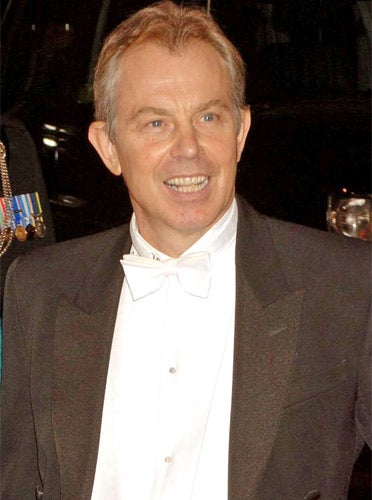Heretics to heroes: how Rome went mainstream

Your support helps us to tell the story
From reproductive rights to climate change to Big Tech, The Independent is on the ground when the story is developing. Whether it's investigating the financials of Elon Musk's pro-Trump PAC or producing our latest documentary, 'The A Word', which shines a light on the American women fighting for reproductive rights, we know how important it is to parse out the facts from the messaging.
At such a critical moment in US history, we need reporters on the ground. Your donation allows us to keep sending journalists to speak to both sides of the story.
The Independent is trusted by Americans across the entire political spectrum. And unlike many other quality news outlets, we choose not to lock Americans out of our reporting and analysis with paywalls. We believe quality journalism should be available to everyone, paid for by those who can afford it.
Your support makes all the difference.When Lord Patten of Barnes was brought in by the Government earlier this year to streamline the organisation of the Pope's visit, he called on fellow Catholics to embrace the notion that Britain was no longer a place rife with anti-Catholicism.
"I've never felt a second-class citizen because I'm a Catholic," he said. "But if anybody ever has, this [visit] would be the end of that."
Two centuries of post-Reformation persecution left an indelible mark on British Catholicism and earned the country a reputation for anti-papism which still persists.
Many Catholic commentators have argued that the negative press of about the Pope's visit is evidence of this hostility.
As for Catholics themselves, they have shaken off the past and reached positions of great prominence.
From the most senior civil servant, to the head of the BBC and even a former prime minister, British Catholicism can confidently claim to be providing the nation with some of its most influential figures in the worlds of politics, business and entertainment.
To celebrate the success of British Catholicism, The Tablet newspaper recently published a list of the top 100 lay Catholics.
Sir Gus O'Donnell, Cabinet Secretary under three consecutive prime ministers, was judged to be the most influential Catholic in the country, closely followed by Mark Thompson, director-general of the BBC. Sir Gus is in charge of half a million civil servants and will be instrumental in carrying out the cuts that the Government is planning.
Tony Blair – a man who once led a government that supposedly "didn't do God" – may now be one of the world's most famous converts to Catholicism.
But the former prime minister could only manage fifth place on the list, beaten by Lord Patten and Slumdog Millionaire director Danny Boyle who has been put in charge of organising the opening ceremony of the London 2012 Olympic Games.
Prominent Catholic politicians include Iain Duncan Smith, now in Government as Secretary of State for Work and Pensions, and Ann Widdecombe – who is widely touted as being a potential replacement for Francis Campbell, Britain's soon-to-retire ambassador to the Holy See.
Mr Campbell himself has been instrumental in improving relations between the British Government and Vatican bureaucrats, who warmed to him instantly following his appointment five years ago.
Other prominent lay Catholics include Marcus Agius, chairman of Barclays, Terry Leahy, chief executive of Tesco and Miriam Gonzalez Durantez, a prominent international lawyer and wife of the Deputy Prime Minister, Nick Clegg.
Join our commenting forum
Join thought-provoking conversations, follow other Independent readers and see their replies
Comments